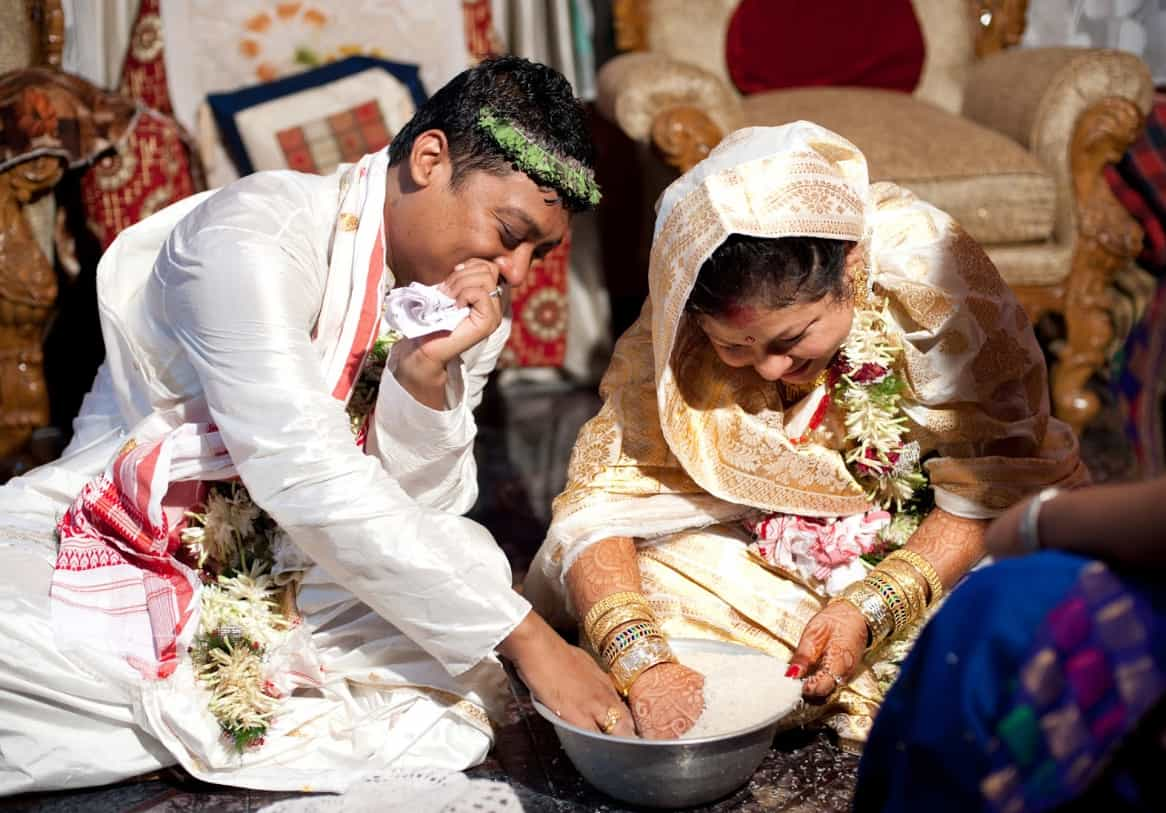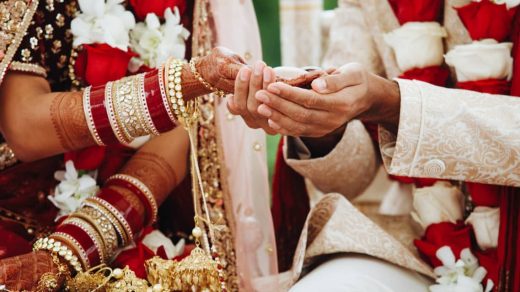Marriage Registration in Assam is an important step for couples starting their new life together. This legal process not only makes your union official in the eyes of the law but also provides you with valuable rights and protections.
Whether you’ve had a traditional Assamese wedding with all its colorful rituals or a simple ceremony, registering your marriage is a must-do task in the beautiful northeastern state of Assam.
Assam, known for its lush tea gardens and diverse culture, has its unique approach to marriage registration.
The process combines age-old traditions with modern legal requirements, ensuring that your marriage is recognized both culturally and legally.
While the thought of paperwork might seem daunting, especially after the excitement of a wedding, it’s a crucial step that brings peace of mind and legal security to your relationship.
In this guide, we’ll walk you through everything you need to know about Marriage Registration in Assam.
From understanding why it’s important to know what documents you’ll need, we’ve got you covered. Remember, this isn’t just a formality – it’s a way to officially start your journey together, backed by the legal framework of Assam.
Marriage Registration in Assam

Assamese weddings, known as “biya” in the local language, are a perfect blend of age-old traditions and modern practices.
These celebrations usually span several days and involve numerous rituals that bring families together.
Let’s dive into the world of Assamese weddings!
Pre-Wedding Ceremonies
Before the big day, several important ceremonies take place. These set the stage for the main wedding and are crucial parts of the celebration.
1. Juroon
- This is like an engagement ceremony.
- The groom’s family visits the bride’s home.
- They bring gifts like clothes, jewelry, and sweets.
- The bride receives a set of bangles called ‘Xankha’.
- This ceremony marks the official start of wedding preparations.
2. Tel Diya
- This happens a few days before the wedding.
- Oil is applied to the bride and groom in their respective homes.
- It’s believed to purify and prepare them for married life.
- Friends and relatives gather to sing traditional songs.
3. Devghor Sajowa
- This means “decorating the prayer room”.
- Families set up a special prayer area in their homes.
- It’s where many of the wedding rituals will take place.
- The area is decorated with flowers, fruits, and traditional items.
4. Adhibas
- This ceremony happens the day before the wedding.
- Both families perform prayers and rituals.
- It’s believed to bring good luck to the couple.
- The bride and groom receive blessings from elders.
Wedding Day Ceremonies
The wedding day is packed with meaningful rituals. Each step has its significance in Assamese culture.
1. Nuwoni
- This is similar to the Haldi ceremony in other Indian weddings.
- A paste of turmeric, oil, and curd is applied to the bride and groom.
- It’s done separately in their respective homes.
- This is believed to give a glow to their skin and ward off evil.
2. Pani Tula
- The mothers of the bride and groom play a key role here.
- They go to a nearby water source (like a river or pond).
- They collect water in a special pot.
- This water is used for the wedding rituals.
- It’s a symbolic way of bringing purity to the ceremony.
3. Daiyan Diya
- A special bowl of curd is prepared.
- Half is sent to the bride’s home, and half to the groom’s.
- The couple eats this curd before leaving for the wedding venue.
- It’s thought to bring sweetness to their relationship.
4. Groom’s Procession (Bor Jatra)
- The groom and his family head to the wedding venue.
- They’re accompanied by music and dancing.
- This procession is called “Bor Jatra”.
- It’s a joyous part of the day, full of excitement.
5. Welcoming the Groom (Bor Boron)
- When the groom arrives, the bride’s family welcomes him.
- The bride’s mother performs an aarti (a welcoming ritual with light).
- The bride’s sister washes the groom’s feet.
- This shows respect and welcomes him into the family.
6. Main Wedding Ceremony (Biya)
- The bride enters, often carried by her brothers.
- The couple exchanges garlands (Jaimala).
- They sit in front of the sacred fire (Havan Kund).
- A priest chants mantras and guides them through rituals.
- The couple takes seven rounds around the fire (Saat Pheras).
- Each round has a specific promise they make to each other.
- Guests sing traditional Assamese wedding songs (Biya Naam).
Post-Wedding Rituals
The ceremonies don’t end with the main wedding. There are important post-wedding rituals too.
1. Vidaai
- This is when the bride leaves her parent’s home.
- It’s an emotional moment for the bride’s family.
- The bride throws back handfuls of rice over her head.
- This symbolizes paying back what she owes her parents.
2. Ghar Gahona
- This happens when the bride enters her new home.
- She’s welcomed by her in-laws with various rituals.
- She might be asked to knock over a pot of rice with her foot.
- This is believed to bring prosperity to her new home.
3. Phool Dia
- The newlyweds visit a temple together.
- They offer flowers and seek blessings for their married life.
- This usually happens the day after the wedding.
4. Aathmangala
- This ceremony happens on the eighth day after the wedding.
- The couple visits the bride’s parents.
- They receive more blessings and gifts.
- It’s a way of maintaining ties between the two families.
Special Assamese Wedding Traditions
Assamese weddings have some unique customs that set them apart. Let’s look at a few:
1. Joran
- This is a special gift-giving ceremony.
- The groom’s family brings gifts for the bride.
- These often include clothes, jewelry, and sweets.
- It’s a way of showing respect and welcoming the bride.
2. Juran Dia
- This is when the bride’s family reciprocates.
- They send gifts to the groom’s family.
- It helps in building a good relationship between the families.
3. Xoru Biya
- This is like a mini-wedding ceremony.
- It happens at the bride’s home before the main wedding.
- Only close family members attend.
- It’s a more intimate celebration of the union.
Assamese Wedding Attire
The clothes worn at an Assamese wedding are beautiful and meaningful. Here’s what you might see:
For the Bride:
- Mekhela Chador: This is the traditional Assamese saree.
- It’s made of two main pieces of cloth.
- The bottom part (Mekhela) is wrapped around like a skirt.
- The top part (Chador) is draped over the body.
- It’s usually made of silk and has beautiful patterns.
- Jewelry: Assamese brides wear lots of gold jewelry.
- A special necklace called “Jonbiri” is common.
- They also wear bangles, earrings, and a nose ring.
For the Groom:
- Dhoti and Kurta: The groom usually wears a white dhoti and kurta.
- Sometimes, he might wear a silk kurta in cream or gold color.
- Gamosa: This is a traditional Assamese scarf.
- It’s tied around the waist or worn on the shoulder.
- It’s made of cotton and has red patterns on a white background.
Assamese Wedding Food
Food is a big part of any wedding, and Assamese weddings are no exception. Here’s what you might find:
- Fish: Fish dishes are very common.
- “Masor Tenga” (sour fish curry) is a favorite.
- Rice: Different types of rice dishes are served.
- “Jolpan” is a special rice dish eaten during ceremonies.
- Sweets: Assamese sweets are a must at weddings.
- “Pitha” (rice cakes) are very popular.
- “Laru” (sweet balls made of coconut or sesame) are also common.
- Vegetarian Options: There are plenty of veggie dishes too.
- “Khar” (made from banana stem) is unique to Assamese cuisine.
- Meat Dishes: For non-vegetarians, chicken and mutton dishes are served.
Modern Twists on Assamese Weddings
While traditions are important, many couples are adding modern touches to their Assamese weddings:
- Fusion Wear: Some brides mix traditional Mekhela Chador with modern designs.
- Professional Photography: Many couples hire professional photographers and videographers.
- Destination Weddings: Some choose to have their wedding at beautiful locations around Assam.
- Eco-Friendly Options: Many are opting for sustainable decorations and favors.
- Wedding Planners: Professional planners are becoming popular for organizing these complex events.
Tips for Attending an Assamese Wedding
If you’re invited to an Assamese wedding, here are some tips:
- Dress Modestly: Choose clothes that aren’t too revealing.
- Bring a Gift: Money in an envelope is common, or you can bring something for the couple’s new home.
- Be Ready for Multiple Events: Remember, it’s not just one day of celebration!
- Try the Food: Don’t miss out on the delicious Assamese cuisine.
- Learn a Few Assamese Words: Knowing basic greetings can help you connect with other guests.
Conclusion:
Assamese weddings are a beautiful celebration of love, family, and tradition. From the pre-wedding ceremonies to the post-wedding rituals, each step is filled with meaning and joy.
Whether you’re planning your Assamese wedding or attending one as a guest, understanding these traditions can help you appreciate the rich culture behind the celebrations.
Remember, while traditions are important, every family might have their way of doing things.
The most important part is the coming together of two people and their families in love and happiness.
Enjoy the colors, tastes, and sounds of an Assamese wedding – it’s truly a once-in-a-lifetime experience!
FAQs About Marriage Registration in Assam:
- Q: How long does an Assamese wedding last?
A: Typically, the main ceremonies span 2-3 days, but including all pre and post-wedding rituals, it can extend up to a week.
- Q: Is there a specific season for Assamese weddings?
A: While weddings happen year-round, many prefer the winter months (November to February) due to the pleasant weather.
- Q: Are Assamese weddings always vegetarian?
A: No, Assamese weddings usually serve both vegetarian and non-vegetarian dishes, with fish being very popular.
- Q: Do Assamese brides wear red like in other Indian weddings?
A: While red is common, Assamese brides often wear white or off-white Mekhela Chadors with red or gold borders.
- Q: Are there any rituals unique to Assamese weddings?
A: Yes, rituals like Pani Tula (fetching water) and Joran (special gift-giving) are unique to Assamese weddings.
- Q: Can non-Assamese people have an Assamese style wedding?
A: Absolutely! Many people choose to incorporate Assamese traditions into their weddings, even if they’re not from Assam.
Also Check: Marriage Age in India for Girl and Boy

